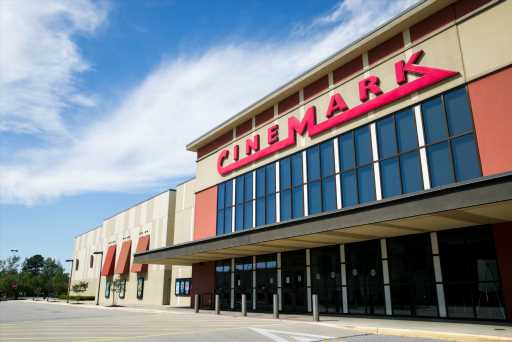Veteran exhibition analyst Eric Wold of B. Riley has given Cinemark stock a big shot in the arm, so to speak, upgrading it to “buy” from “neutral” and doubling his price target.
In a note to clients, Wold said he held a “fireside chat” with the management of the major theater circuit earlier this week. Despite the raging infection rates of Covid-19 across the country, which continue to keep a lid on major markets like LA and New York, Wold believes Cinemark is well-positioned during and after the pandemic. He boosted his 12-month price target to $28 from $14. The company’s shares spiked in the opening minutes of trading this morning but have since settled into break-even territory at around $19. That is the same range where they traded last June, when the first wave of the virus receded and offered a glimmer of hope for the summer 2020 season.
“We came away from our discussion increasingly confident in the steps management has taken over the past year to not only keep Cinemark financially on track during the uncertainty, but to also position the company to emerge from the other side in a stronger position—both in terms of potential market share gains and margin expansion,” Wold wrote. “With that, we are comfortable looking ahead to our newly introduced 2023 estimates as a return to levels we previously projected for 2020/2021 before the pandemic.”
Cinemark’s reduced theatrical window deal with Universal offers a precedent that will be followed by other studios, company brass predicts. Management “noted an expectation that the Universal agreement will be net neutral to operations (with additional economics covering potential PVOD cannibalization), but with the potential for upside,” Wold said. WarnerMedia’s decision to put the entire 2021 Warner Bros slate on HBO Max at the same time it hits theaters has prompted a fierce industry backlash. But Wold said Cinemark is still evaluating terms for each film’s engagement and won’t book any that don’t offer reasonable economics. The company took a couple of weeks to confirm Wonder Woman 1984 bookings after the studio’s day-and-date announcement, Wold noted.
News last fall of effective vaccines reaching the market by the end of 2020 prompted a rebound in exhibition stocks after a long stretch in the doldrums. However, “this was only the first leg of the stock’s recovery,” Wold maintained, “and represented more of a relief rally around eliminating liquidity and ‘going out of business’ concerns. We now see an increasingly attractive setup for the next leg of recovery for Cinemark shares as investors look to 2022/2023 and a return to normalcy for the exhibition industry.”
CEO Mark Zoradi and his management team told Wold that the first quarter of 2021 will be “tough” due to a slower-than-expected vaccine rollout and a light film slate as studios keep their powder dry. They see a “modest” recovery in the second quarter and a “stronger” third and fourth quarter as theaters and the broader economy begin to emerge from the pandemic.
Wold said he walked away from the discussion with Cinemark convinced of “evidence showing moviegoing habits will return.” The circuit’s management team noted highlights internationally such as The Eight Hundred generating $460M in box office in China and Demon Slayer becoming the top title ever in Japan, with $335 million. They also noted that Australia, usually the No. 10 global film market, has become the second largest territory for Wonder Woman 1984, in part because HBO Max is not operating there.
Other pluses for Cinemark, per Wold, are its strong balance sheet relative to those of other top circuits as well as its first-mover position on offering “watch parties,” a popular draw that should continue after the pandemic.
Read More About:
Source: Read Full Article
